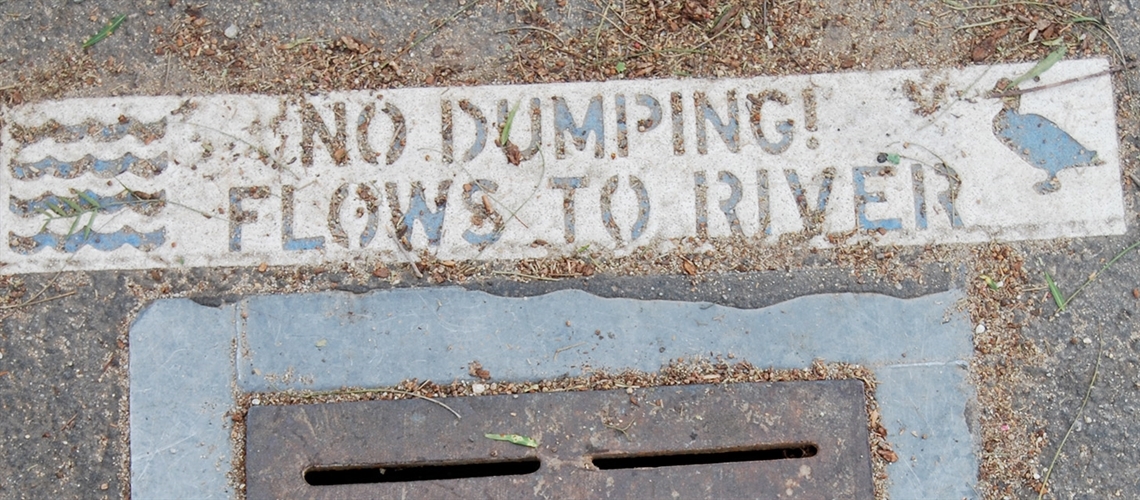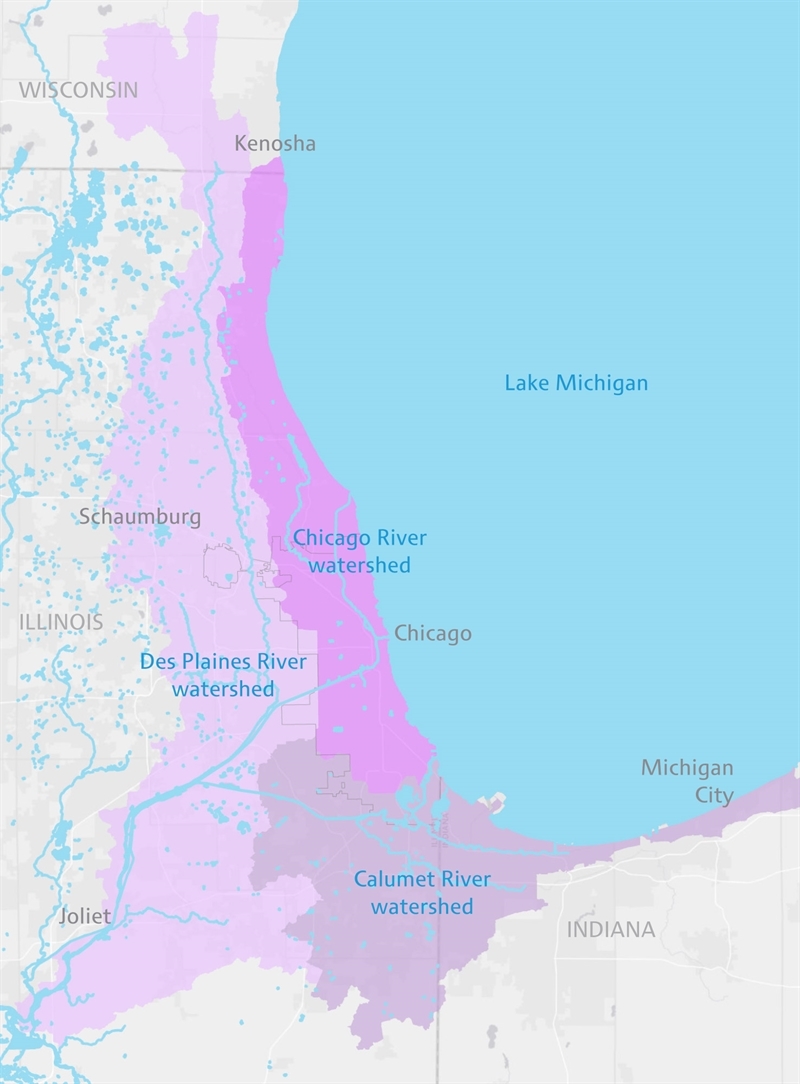Living
2030 Goal: Coordinated prevention of water pollution

Christina B. Castro
Signs on storm drains can remind people of the connection between our sewers and our rivers.
Chicago-area residents should be engaged in helping manage litter, pollution and local stormwater within their watershed to improve local and downstream river water quality.
By educating the public about the connections between water consumption, rain, litter, the sewer system and our rivers, we will increase understanding of how water moves through the city’s interconnected system of curbs and underground pipes, and can easily make its way into the river. Widespread use of natural stormwater solutions—e.g bioswales and rain gardens—on public and private property will manage more rain where it falls, reducing flooding and runoff to storm drains.
1,834 square miles of land drain to our rivers
City and civic organizations should partner with communities on public education, such as signs that inform people that gutters drain to the river in storm events and maps that illustrate which areas of the city drain to which areas of the rivers.
We also need to aggressively mitigate contaminants such as chlorides, pharmaceutical residuals and endocrine disruptors. To do so, MWRD should lead countywide programs to improve the efficiency and sustainability of road deicing in order to minimize salt use; and work with medical and law enforcement partners to create a distributed network of secure facilities for pharmaceutical drop-off and disposal.
A vast watershed to protect

Together, the watersheds of our rivers drain more than 1,800 square miles of land across three states.
Making it happen
- Develop watershed-based plans for major sub-watersheds of Cook County and Chicago.
- Engage neighborhood organizations and business associations in watershed-based planning in major sewersheds.
- Develop a robust educational campaign to raise awareness of the connection between people’s behavior, property management and river water quality.
- Create and promote a safe, dependable system for pharmaceutical drop-offs and disposal.
- Develop programs and policies to discourage excessive use of road salt.
- Develop programs and policies to encourage the use of nature-based stormwater management practices on private property.
Key players
Chicago Dept. of Water Management, Chicago Park District, Chicago Dept. of Transportation, Chicago Dept. of Streets and Sanitation, MWRD, Ill. Environmental Protection Agency, Ill. Dept. of Natural Resources, Forest Preserves of Cook County, Friends of the Chicago River, Openlands, Center for Neighborhood Technology, Chicago Metropolitan Agency for Planning
Our rivers, our role
- Explore options for installing nature-based stormwater solutions, such as a rain garden or cistern, on your property.
- Reduce water consumption during storms to reduce the likelihood of combined sewer overflows.
- Sign up for Friends of the Chicago Rivers’ Overflow Action Alerts.
- Always return expired or unused pharmaceuticals to a secure facility. Never flush them down the toilet.
Back to goals